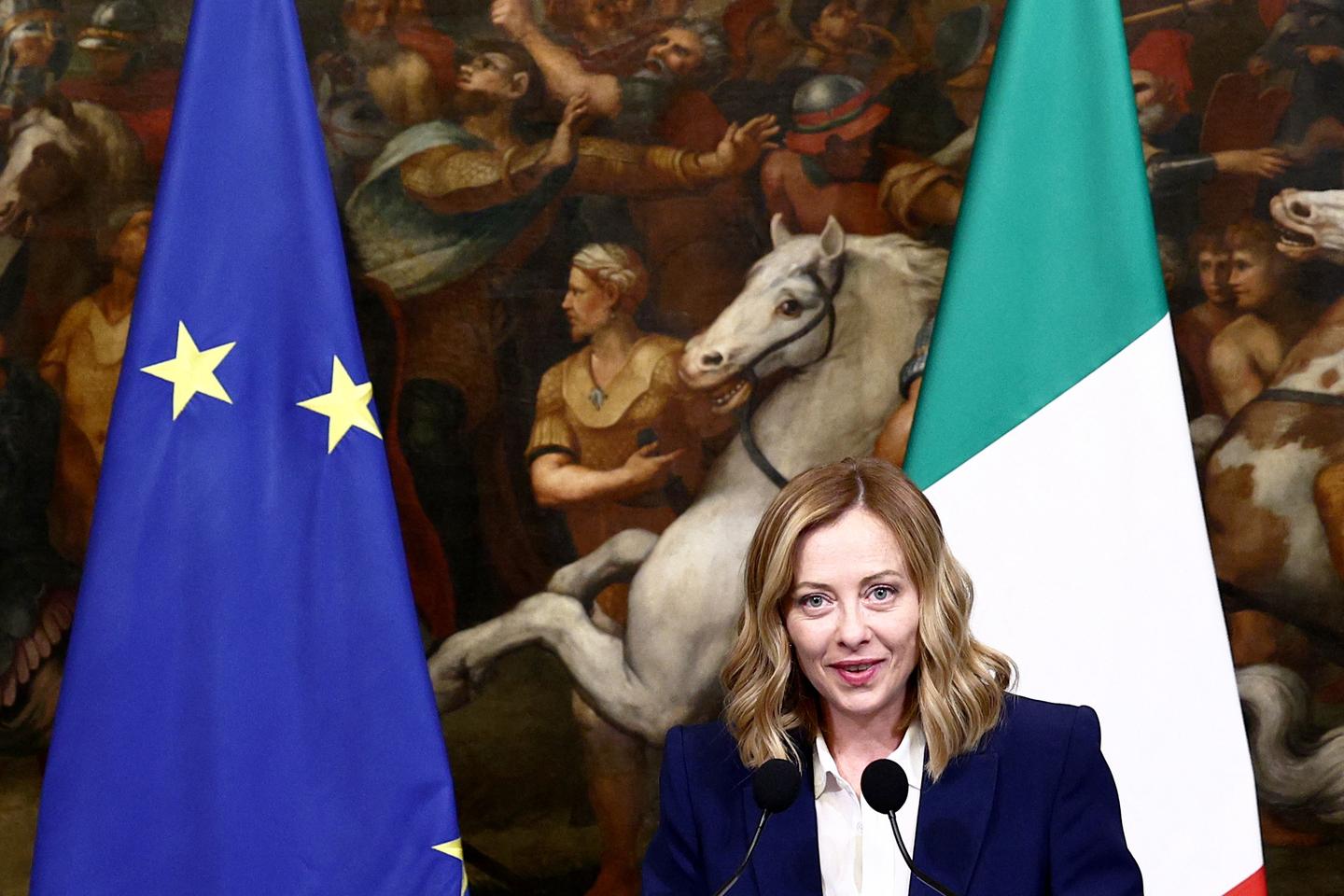


For France's economic elites, if the Rassemblement National (RN) ends up forming a government, its vague platform will lead to an economic policy "à la Meloni": liberal and purged of projects they deem "dangerous." The parallel with the leader of the post-fascist Fratelli d'Italia party, who became Italy's prime minister in October 2022, is indeed tempting, but omits an essential point.
The day after Giorgia Meloni's accession to the Palazzo Chigi (seat of the Italian government), Emmanuel Macron was the first foreign leader to meet her. This diplomatic endorsement was accompanied by a tweet from the French president, reassuring at the time but now troubling in the context of the rise of the far right: "Succeeding together, with dialogue and ambition: We owe it to our youth and our people. Our first meeting in Rome is a step in this direction." In the three days that followed, the Milan stock exchange rose by 4%.
The supporting partner from Italy's traditional right – Forza Italia – was to be the guarantor of a "return to reason." Meloni's promise to roll back the extension of the retirement age was therefore buried – as has been the RN's firm commitment as soon as the agreement with the conservative leader of Les Républicains, Eric Ciotti, was signed. The threat of a tax on the super-profits of Italian banks has been transformed into a harmless device.
Financial contribution
In contrast, measures aligned with the "neoliberal" agenda have been maintained in Italy. Corporate taxes have been reduced, something aligned with RN commitments; a "flat tax" has been introduced to reward entrepreneurs, who are the Meloni coalition's core voters. Employment contributions and taxes have been reduced. The RN version is a wage increase at the discretion of private employers of up to 10%, with no employer social security contributions. Replacing increases negotiated with trade unions at company or branch level, these measures ultimately result in lower labor costs, to the detriment of the social security system and the state. All in all, in Italian companies, real gross wages remain 5% to 10% below their pre-Covid-19 level. As for civil servants, they have been forgotten.
To balance the budget, the cuts in subsidies to charities and NGOs laid out in the RN's policy platform have been implemented in Italy. Meanwhile, the privatization of France's public broadcasting system echoes that of the Italian postal service. Both far-right coalitions emphasize the fight against fraud, without giving officials the means to curb it. The RN, however, has not yet followed suit in abolishing the Italian equivalent of the RSA (minimum income benefit).
You have 31.96% of this article left to read. The rest is for subscribers only.
